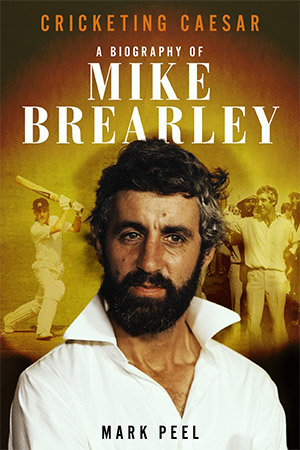Mike Brearley was one of England's greatest cricket captains. His first series triumph was against India in India in 1976-77, winning the rubber by 3-1. The first Test in Mumbai was drawn. But after losing the second Test in Bengaluru, England won the next three Tests by huge margins in Chennai, Kolkata and Delhi.
He thrice won the Ashes - 3-0 in 1977 in England, 5-1 in 1978-79 in Australia and the unforgettable series of 1981, when his leadership helped England to snatch victory from defeat - 3-0 in England. Ian Botham was the match-winner in the 1981 series, aggregating 399 (ave 36.27), including two hundreds and capturing 34 wickets at 20.58, including three five-wicket hauls, in the six-Test series. He was justifiably adjudged the player of the series.
Brearley faced constant pressures as a batsman at the highest level. As a winning captain in eleven Ashes Tests, his contribution was just 419 runs (ave. 20.95) in 21 innings, including two fifties - 81 at Nottingham in 1977 and 53 at Sydney in 1979.
His overall Test record being 1442 runs at an average of 22.88, including nine fifties, at a strike rate of 29.79 in 39 Tests while in 21 wins he managed just 690 runs (ave 21.56), including four fifties, at a strike rate of 30.51.
According to Taylor, Brearley was the only man who could handle Boycott and Botham properly, 'the former by quiet cajolery and Botham through a mixture of leg-pulling and firm leadership'.?
In this first-ever biography of Brearley, award-winning cricket writer Mark Peel reveals how Brearley overcame his critics to lead Middlesex to four county championships and two Gillette Cup wins. His rise to the England captaincy was fast, but his unrivalled leadership skills contrasted with his repeated failures with the bat.
In the introductory chapter, Mark Peel remarked: "A keen student of the game, Brearley would rarely allow a match to drift. He was always willing to experiment and despite his sharp intellect he conveyed his thoughts to his players with admirable clarity. Invariably calm under pressure, he handled his bowlers and fielders with aplomb, ruthlessly preying on the weaknesses of opposition batsmen.
Others have questioned Brearley's enviable reputation by pointing to his good fortune in having Botham at his peak when playing against some mediocre opposition in the Packer era, but if the great Australian captain Richie Benaud was correct when he pronounced that captaincy was 90 per cent luck and 10 per cent skill, then Brearley exploited his luck better than most."
In a chapter, Physician Heal Thyself Mark Peel believes Brearley's assessment about his unfulfilled potential is supported by plenty of ex-team-mates and critics who contend that he was a better player than his Test record suggests. They point to a career aggregate of over 25,000 runs with 45 centuries, mainly on uncovered wickets, and that between 1974 and 1982 he was invariably one of the top Englishmen in the national batting averages. Often compared to Mike Denness.
Away from cricket, Brearley possessed a range of cultural interests along with a sharp intellect, which saw him achieve eminence as a psychoanalyst. Drawing on interviews with friends and team-mates, Peel assesses the many facets of this complex man to explain his phenomenal success as a leader.
Including the one-off Tests, Brearley led England in twelve series, winning eight, losing three and drawing the remaining one.
According to Woodcock, 'Brearley was brilliantly analytical. He has worked out the modern game better than anyone else except perhaps Ray Illingworth,' an assessment similar to John Arlott's. In a special appreciation in Wisden to mark his retirement, Arlott not only paid tribute to his exceptional intellect, but also his ability to understand and motivate players. 'There is no doubt that he was one of the best - certainly the most sustainedly successful - captain international cricket has known.' It was a legacy to be proud of and one that has stood the test of time. |

